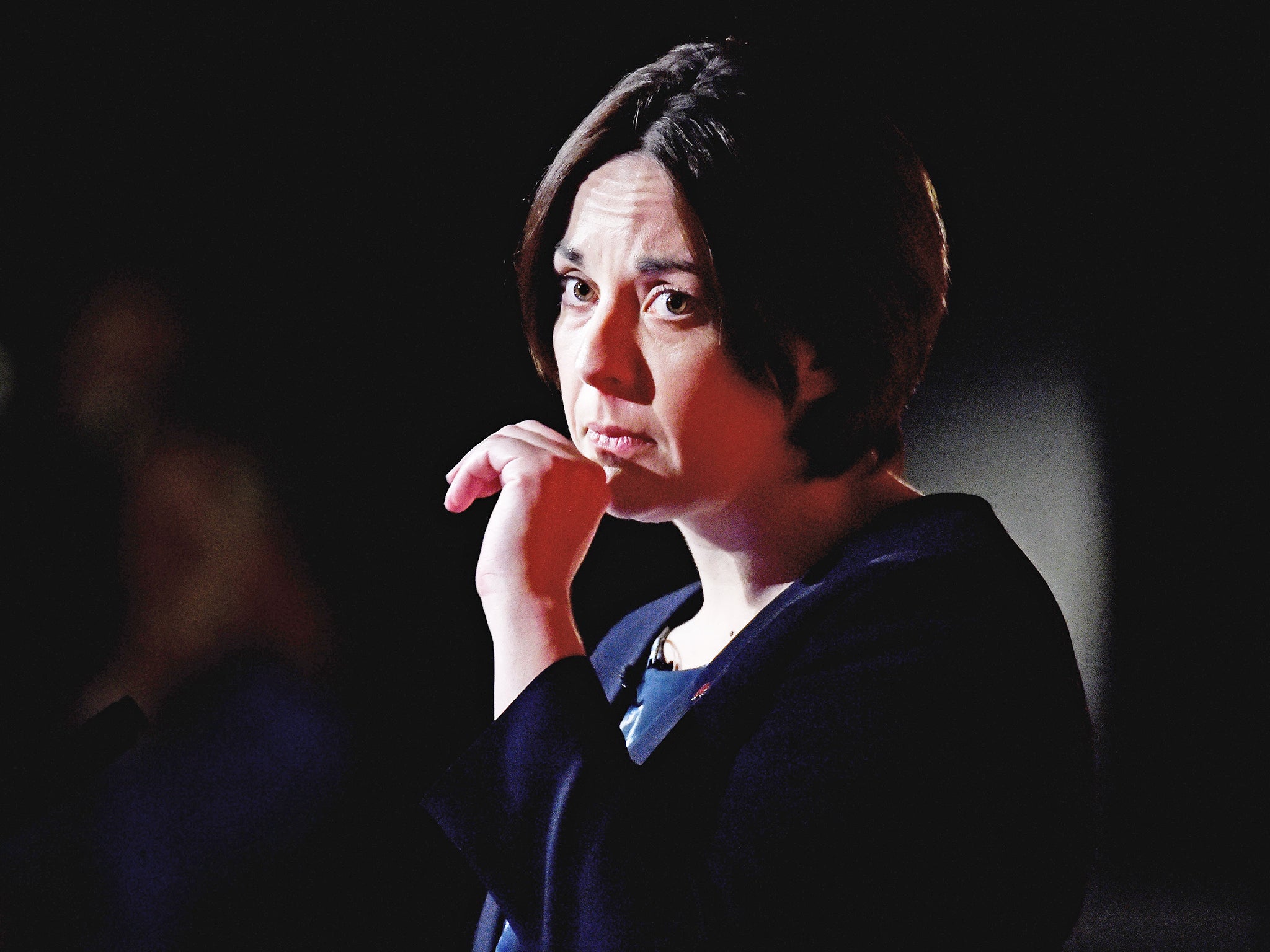Scottish Parliament elections: Tories and Labour in tight race for second place behind SNP, poll finds
Meanwhile, Ukip appears to be in disarray north of the border

The race for second place in the Scottish Parliament elections is on a knife-edge with less than 48 hours to go before polls close – as the latest survey show Labour risks being relegated to third place.
With the SNP set to dominate in Thursday’s elections, the UK-wide unionist parties are battling for second position, with Kezia Dugdale’s party now trailing by one point.
The Survation poll, conducted for Scotland’s Daily Record newspaper, shows once-dominant Labour on 19 per cent in the regional list vote, with the Scottish Tories narrowly leading it on 20 per cent.
Labour retains a narrow lead in the constituency vote, but because of Scotland’s electoral system, the Tories would be likely to end up with more MSPs if such a result was repeated on polling day.
Meanwhile Ukip, which has been hoping to make gains in other areas of the UK on Thursday – appears to be in disarray north of the border.
Polling two per cent – below the threshold to win any seats – the Eurosceptic party was described this weekend as being in “all-out civil war” by Alan Melville, its main candidate in Lothian.
Leader David Coburn, the party’s only MEP in Scotland, dismissed the warning as “a lot of tosh”. Some activists called for a change in leader earlier this year, but Mr Coburn has remained in post.
Labour has tried to put ‘clear red water’ between it and the SNP – pledging to raise taxes to cancel cuts and attacking the SNP’s reticence to raise the top rate of the highest earners.
Ms Dugdale said her party was “the only party with a plan to stop the cuts” – but the strategy has so far made few inroads into SNP support, with former Labour voters apparently backing the nationalist party in their hundreds of thousands.
The Tories have conceded that they are unlikely to win, but have pitched to Scottish voters as the party most able to provide a “strong opposition” to the dominant SNP.
A third place result in Scotland would be a humiliation for Labour – with activists long having gloated at the Tories’ irrelevance there since the 1980s. Though the party’s troubles there started under Jim Murphy and Ed Miliband, a symbolically poor result in its old heartland could increase pressure on UK Labour leader Jeremy Corbyn to quit – and give succor to his internal enemies.
Labour lost all but one of its seats in Scotland at last year’s UK general election; the Tories and Liberal Democrats also have one each.
The other big winners on Thursday could be the Scottish Greens, who polls suggest are on course to triple – or even better – their number of MSPs, currently at two.
Some SNP voters are reportedly lending their regional list votes to the Greens in order to maximise the number of pro-independence MSPs in the Scottish Parliament. The approach would work because parties that sweep the board in the constituency vote – as the SNP is likely to – do not tend to receive top-up seats on the regional list vote no matter what they score.
SNP MPs have criticised the tactic however, and launched a social media campaign for their supporters to make “#bothvotesSNP”.
The Survation phone poll has top-line list figures of SNP 43 per cent, Conservatives 20 per cent, Labour 19 per cent, Greens 7 per cent, Liberal Democrats 6 per cent, and Ukip 2 per cent.
At the constituency level the SNP are on 49 per cent, Labour are on 21 per cent, the Tories are on 19 per cent and the Liberal Democrats are on 7 per cent.
Subscribe to Independent Premium to bookmark this article
Want to bookmark your favourite articles and stories to read or reference later? Start your Independent Premium subscription today.

Join our commenting forum
Join thought-provoking conversations, follow other Independent readers and see their replies